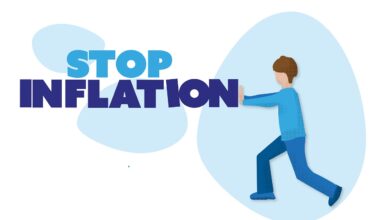Tax-Efficient Retirement Planning Tips
Retirement planning is a critical component of financial security. To maximize your retirement savings, understanding tax-efficient strategies is essential. One effective approach is using tax-advantaged accounts, such as 401(k)s and IRAs. These accounts allow you to save money on a pre-tax basis or grow savings tax-free. Additionally, it’s important to keep your investment allocation diversified, which helps in balancing taxable and tax-deferred accounts effectively. By doing this, you minimize taxes during retirement. In retirement, consider tax-efficient withdrawal strategies. Withdraw funds from accounts in this order: taxable accounts first, tax-deferred accounts next, and tax-free accounts last. Doing so can prolong the lifespan of your tax-deferred and tax-free accounts. Also, consider your tax bracket when planning withdrawals, ensuring minimal taxation on your retirement funds. This can ultimately lead to more wealth accumulation in your later years. Understanding how Social Security benefits are taxed is another key component. For many retirees, this income could push them into higher tax brackets. Make informed decisions about when to take these benefits to optimize your overall tax situation during retirement.
Furthermore, explore the benefits of converting traditional IRAs into Roth IRAs. This strategy allows for tax-free growth, especially if you expect to be in a higher tax bracket upon retirement. This conversion can be beneficial during years with lower income, making tax liability lower on the converted amount. Diversification in account types will lead to better management of your retirement income, ensuring you pay minimal taxes overall. Another significant aspect is the importance of timing your capital gains. If you have investments in taxable accounts, consider selling assets in years when your income is lower to benefit from lower capital gains tax rates. This can provide substantial savings. Additionally, health savings accounts (HSAs) are a useful vehicle not just for medical expenses, but also as a retirement savings tool. Contributions made to HSAs are tax-deductible, and withdrawals for qualified medical expenses are tax-free. When planning your estate, it’s critical to consider tax implication as well. Utilizing trusts can provide tax advantages that benefit your heirs and mitigate taxes on your estate later on.
Understanding Required Minimum Distributions
When approaching retirement, it’s vital to understand required minimum distributions (RMDs). As you turn seventy-two, the IRS mandates withdrawals from tax-deferred accounts like 401(k)s and traditional IRAs. Failing to take RMDs can lead to hefty penalties, so proper planning is essential. RMDs are taxed as ordinary income, which makes it crucial to strategize how and when to withdraw funds from these accounts. Count your other income sources into your RMD calculations to avoid straddling tax brackets. Carefully planning distributions can help manage the tax impact of yearly withdrawals. You might consider delaying income sources other than your RMDs to maintain a lower tax burden. Another strategy involves incorporating charitable contributions directly from your RMDs, significantly lowering your taxable income. Qualified charitable distributions (QCDs) allow individuals to give to charity directly from their RMDs without incurring income tax liability. This approach not only fulfills your charitable goals but also serves your financial interests effectively. By being proactive about RMDs and utilizing QCDs, you can optimize your retirement income and manage potential tax obligations efficiently.
Don’t overlook the impact of inflation on your retirement savings. As the cost of living rises, your purchasing power declines if your income remains fixed. Incorporating investments into your strategy that have the potential for growth is crucial. Stocks and real estate are good examples of relatively stable growth options. Allocate a portion of your investment portfolio to these types of assets to help combat inflation over time. When saving for retirement, consider the rate of return on your investments while factoring in inflation rates. This helps ensure your pension funds increase in real value. As you near retirement, reevaluate your investment strategy. Consider shifting towards more conservative investments to preserve your capital but still retain some growth potential. Bonds and dividend-paying stocks can shield your savings during inflationary periods. Maintain flexibility in your planning, as unexpected expenses can arise. Having a cash reserve can be useful in the short term while ensuring your long-term investments can grow. Assess your savings regularly and be willing to consult with financial advisors to tweak your strategy accordingly.
The Importance of Estate Planning
As you build your retirement strategy, don’t neglect estate planning. Ensuring your assets are transferred according to your wishes can mitigate tax implications for your heirs. Estate planning is not just for the wealthy; every individual should have a plan in place. Wills and trusts play essential roles in this process, allowing you to direct the distribution of your assets after life. They can also help protect your family from extensive estate taxes. For example, gifting assets during your lifetime can diminish the size of your estate and reduce potential taxes later. Understanding tax exemptions and deductions available in your jurisdiction is imperative when crafting your estate plan. Another important consideration is life insurance, which can provide tax-free benefits to beneficiaries. This strategy can be especially effective in managing your estate tax liability while ensuring financial security for your loved ones. Life insurance policies can serve as a means to pay off debts or manage taxes after passing on, ensuring a smooth transition for your heirs. Regularly review your estate plan as your financial situation evolves; adjustments may be necessary to keep it aligned with your wishes.
While preparing your retirement strategy, consider utilizing tax credits available to retirees. Among these credits are those for the elderly or disabled, which can provide much-needed financial relief. These credits can directly reduce the amount of tax owed, making them valuable during retirement. Additionally, pursuing potential deductions, such as medical expenses, can reduce taxable income significantly. Itemizing deductions could lead to substantial savings, depending on your specific expenses in retirement. Furthermore, keep abreast of tax-saving strategies related to your investment income. For example, consider holding onto certain investments longer to benefit from long-term capital gains, which can be taxed at lower rates. Moreover, strategies, such as tax-loss harvesting, can offset gains and reduce taxes owed. Besides, tax-efficient funds can mitigate the tax impact of your portfolios. Choose investment vehicles like index funds or tax-managed funds that minimize taxable distributions. Always stay informed about changes in tax laws, as this information can help maximize your retirement savings. Consulting with a tax professional or financial advisor is highly recommended to tailor effective strategies to your situation, ensuring optimal tax efficiency throughout retirement.
Conclusion on Retirement Planning
In conclusion, tax-efficient retirement planning is pivotal in ensuring financial freedom during your golden years. By employing the mentioned strategies, you can effectively manage your retirement savings, minimize taxes, and maximize your wealth for the future. It’s essential to use tax-advantaged accounts wisely, consider the timing of distributions, and develop a robust estate plan. Regular assessments of your financial plan, including investments and withdrawals, help maintain your goals in alignment with tax responsibilities. Stay informed about tax changes, as they can significantly impact your strategy. Seek guidance from financial professionals when needed to enhance your understanding and optimize your planning. By being proactive—a crucial element in retirement strategies—you can set yourself up for lasting success. Ultimately, prioritize tax-efficient strategies to protect your retirement savings and provide a comfortable lifestyle. Understanding your financial landscape and adapting to changes will be key components in achieving your retirement dreams. Remember to continually assess your goals and adjust your strategies as you grow older. Each decision you make now contributes to your financial legacy and well-being in the years to come.
In summary, being proactive and aware of tax-efficient retirement planning strategies can greatly improve your financial situation. Aim for a diversified portfolio, maintain flexibility, and remember to review and adjust plans regularly. These efforts, combined with informed decisions regarding RMDs, estate taxes, and income sources, can lead to sustainable wealth and security in retirement. More importantly, staying educated about changes in the tax landscape is essential. Make use of the expertise of financial professionals who can guide you as you navigate this complex topic. By remaining informed and proactive, you’ll be well-equipped to optimize your savings and ensure a fulfilling retirement. Balancing your retirement funding and lifestyle will pave your path to financial security. Together with creative tax strategies, you can enhance your wealth while ensuring compliance with tax regulations. Starting today, you should analyze your current assets, income sources, and tax obligations with careful attention. The minutiae of tax rules may seem tedious, but they greatly affect your retirement savings. Reach out for professional advice whenever needed, ensuring that your retirement phase is not only tax-efficient but also flexible and enjoyable.





